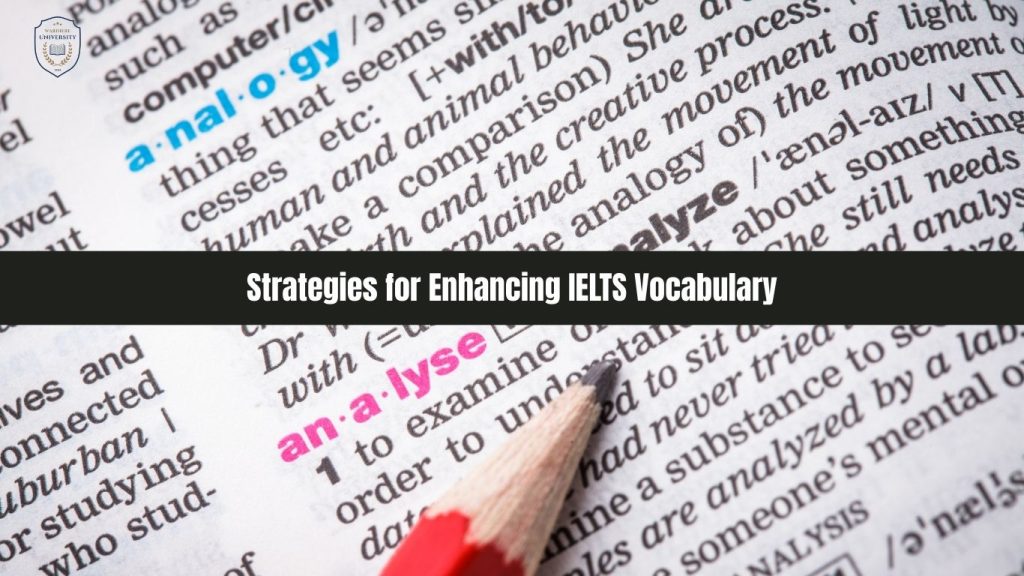Preparing for the IELTS exam requires a strategic focus on vocabulary, particularly for enhancing communication in both spoken and written formats. The IELTS test assesses language proficiency across various domains, making it crucial for candidates to build a robust vocabulary. Understanding common vocabulary for everyday topics is essential, especially in Part 1 of the Speaking Test, where candidates must discuss familiar subjects like home, studies, and leisure activities. Utilizing vocabulary tools such as the IELTS Word Power app can significantly aid in mastering pronunciation, stress, and word usage. By integrating these resources into your study routine, you can develop a nuanced understanding of language that is necessary for success in the IELTS exam, aiding in effective expression and comprehension.
Common IELTS vocabulary for Everyday Topics:
In the IELTS Speaking Test, especially in Part 1, you are often asked about everyday topics such as your home, hometown, studies, job, shopping, and social activities. Developing a strong vocabulary for these areas is essential for delivering fluent and coherent responses. Here is a breakdown of key vocabulary for each topic area, which can be particularly useful during preparation for the IELTS exam:
Home
– Key Words: Apartment, neighborhood, balcony, spacious, cozy.
– Example Sentences: “I live in a spacious apartment with a sunny balcony. My neighborhood is very friendly and safe.”
Hometown
– Key Words: Urban, rural, community, landmarks, vibrant.
– Example Sentences: “My hometown is quite rural, but it has a vibrant community spirit and a few famous landmarks.”
Studies
– Key Words: Major, semester, coursework, lecture, academic.
– Example Sentences: “I am majoring in Biology, and this semester, my coursework is focused on genetics and ecology.”
Job
– Key Words: Profession, career, colleagues, flexible, challenging.
– Example Sentences: “I work in marketing, which is a challenging field, but I enjoy the flexibility and creativity it offers.”
Shopping
– Key Words: Retail, mall, bargain, purchase, browse.
– Example Sentences: “On weekends, I often browse the mall for bargains. Shopping is both a necessity and a leisure activity for me.”
Activities with Friends
– Key Words: Outings, socialize, hobby, gather, entertain.
– Example Sentences: “I love to socialize with friends over coffee or gather for movie nights. It’s our favorite way to unwind.”
Preparation Strategy
When preparing for the IELTS Speaking Test, practice using these key words in full sentences. Aim to answer questions with 2-3 sentences, providing reasons or examples to support your answers. This not only showcases your vocabulary but also your ability to communicate ideas effectively, a crucial skill for achieving a high band score in the IELTS exam. Engaging in regular practice with these everyday topics will enhance your confidence and performance on test day.
Vocabulary Practice and Tools:
Enhancing vocabulary skills is crucial for success in the IELTS exam, particularly for the speaking test. To effectively improve your vocabulary, utilizing specialized resources like the IELTS Word Power app can be incredibly beneficial. The app is designed to support candidates by providing targeted exercises and features that focus on pronunciation, word stress, and learning new vocabulary relevant to IELTS topics.
How the IELTS Word Power App Enhances Vocabulary
1. Pronunciation Practice:
– The app includes audio features that help users learn the correct pronunciation of words. By listening to native-speaker accents and repeating words, candidates can refine their pronunciation skills, ensuring clarity and confidence during the speaking test.
2. Word Stress Emphasis:
– Understanding word stress is essential for natural-sounding English. The IELTS Word Power app highlights syllable stress patterns, allowing users to practice and master this aspect of pronunciation, which is often tested implicitly during the speaking section.
3. Vocabulary Expansion:
– The app offers a wide range of vocabulary exercises tailored to common IELTS topics. By engaging with these exercises, candidates can learn new words and phrases that are pertinent to typical speaking test subjects, such as work, education, travel, and social interactions.
4. Interactive Quizzes and Games:
– Interactive elements like quizzes and vocabulary games make learning engaging and effective. These features not only help in memorizing new words but also in understanding their usage in different contexts, which is vital for the IELTS exam.
5. Customization and Tracking:
– Users can personalize their learning experience by selecting specific topics or areas where they need improvement. The app tracks progress over time, helping learners identify strengths and areas needing further attention.
By focusing on pronunciation, word stress, and relevant vocabulary, the app provides a comprehensive approach to language learning. For candidates aiming to improve their speaking test performance, integrating this tool into their study routine can lead to significant improvements in both confidence and competence. Through consistent practice with the app, learners can effectively enhance their vocabulary skills, better preparing them for success in the IELTS exam.
Strategies to Enhance Vocabulary for Writing and Speaking
Improving vocabulary for the IELTS exam, particularly in writing and speaking, requires a strategic approach that integrates context-based learning and active usage. Here are some effective strategies to enhance your vocabulary, ensuring that you not only expand your word bank but also retain new words for both written and spoken tasks.
Engage with Diverse Texts:
Reading a variety of materials such as articles, books, and academic journals exposes you to new vocabulary in context. This not only helps you understand the meaning of words but also how they are used in different scenarios. Diverse reading materials enrich your vocabulary, familiarize you with various writing styles, and improve comprehension skills crucial for the IELTS exam.
Summarize Main Ideas:
After reading, practice summarizing the main ideas in your own words. This exercise helps reinforce new vocabulary and ensures you understand the context in which it is used. Summarizing also aids in developing the ability to express complex ideas concisely, a skill invaluable for the IELTS writing tasks.
Practice Sentence Completion Exercises:
Engage in exercises that require you to complete sentences with appropriate words or phrases. These activities encourage you to apply new vocabulary in context, enhancing your ability to recall and use words effectively in both writing and speaking. Sentence completion exercises simulate the thinking process needed during the actual IELTS test.
Regular Practice Tests:
Taking regular practice tests helps in applying new vocabulary under test conditions. Practice tests familiarize you with the IELTS format and types of questions, allowing you to practice word usage systematically. This not only boosts your confidence but also helps identify areas where further vocabulary development is needed.
Use Vocabulary Apps and Tools:
Leverage apps designed for vocabulary building, such as flashcard apps or language learning platforms. These tools often include spaced repetition features, which reinforce long-term retention of new words. Incorporating these tools into your study routine makes vocabulary learning more manageable and effective.
Incorporate New Words into Writing and Speaking:
Actively use new vocabulary in your daily speaking and writing practice. This could include writing essays on various topics or engaging in conversations where you consciously incorporate new words. This practice not only cements your understanding but also increases your comfort in using advanced vocabulary during the IELTS exam.
To enhance vocabulary for IELTS writing and speaking, integrate diverse reading, summarizing, and practical exercises into your routine. This approach ensures you not only learn new words but also understand their application in context, increasing your ability to use them effectively during the exam. By consistently applying these strategies, you will build a comprehensive vocabulary that supports success in both the written and spoken sections of the IELTS.
Conclusion
Focusing on vocabulary development is critical for excelling in the IELTS exam, impacting both speaking and writing components. By engaging with diverse texts and utilizing specialized tools, candidates can enhance their linguistic range and accuracy. This approach not only prepares them for the practical demands of the exam but also equips them with language skills applicable in real-world scenarios. As you consistently integrate these strategies into your preparation, you’ll find your ability to articulate ideas clearly and concisely greatly improved. This comprehensive understanding of vocabulary will not only help in achieving a higher band score but also in fostering effective communication skills for academic and professional environments where English is the medium of interaction.
Related posts:
Source:
Keywords:
- Vocabulary for ielts pdf free download
- Vocabulary for ielts with answers pdf
- Vocabulary for ielts speaking
- Vocabulary for IELTS Audio
- Vocabulary for IELTS free download
- Vocabulary for ielts with answers
- Vocabulary for IELTS Cambridge
- Vocabulary for ielts flip


 Tiếng Việt
Tiếng Việt